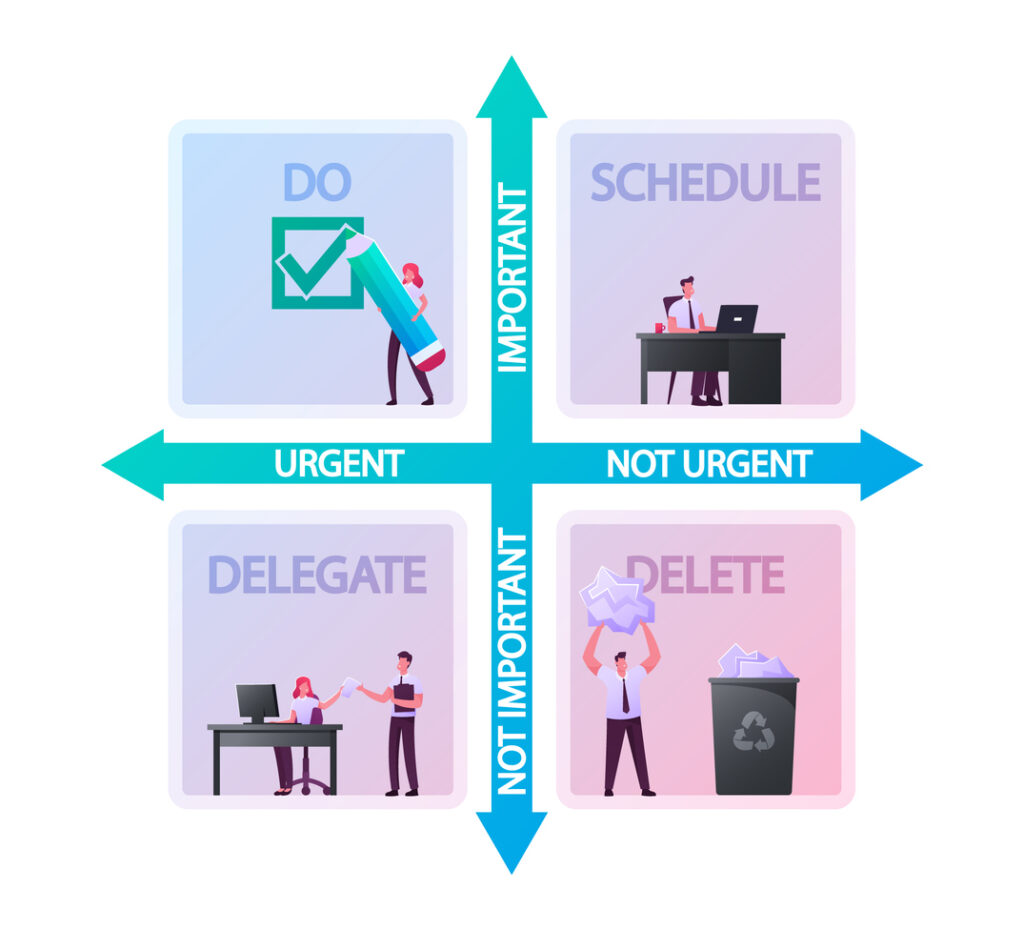Gary Cain, Director at Reach CF, shares some insights.
I was at an event recently and one of the presenters talked about how human nature tends to focus on just actioning the urgent tasks rather than those that are important and it got me thinking!
We see this quite often. A client has a pressing funding need but seems to allow every other task to take priority. I guess at times we all do it too, putting out one fire after another, spending most of our time managing crises.
When we survive the challenge we dust ourselves down and think we have achieved something, but have we really done anything of significance? Most often all we have done is confuse the urgent with the important. We do have to learn to distinguish between the two.
Plenty has been written on the topic, breaking it down into four quadrants.
- Important and urgent
In quadrant one we find important and urgent things, such as crises and emergencies. These should not be ignored, but the more time you can spend on important, but not urgent (prevention, planning, improvement) the less crises and emergencies you will experience.
Of course there are some things in business that are both urgent as well as important – demanding our immediate attention, for example hitting critical deadlines like submitting a tax return. I do think though if there was more thought and planning these would move from urgent to important. So if you plan in advance to get ready well before the headline it does not become an urgent task.
2. Non-urgent but important tasks
These don’t have a pressing deadline, but do help you achieve your goals and better plan for what lies ahead. In this list we find weekly and long-term planning. We should really focus on this area as it is these tasks that will deliver success.
Quadrant two tasks are all about planning, prevention, improving capability, building relationships and recognising opportunities. Spending time on these important things should lead to a clear vision, discipline, control, and fewer crisis situations. We all have an inclination to focus on whatever is most pressing at the moment. It’s harder to get motivated to do something when there isn’t a deadline looming over our heads. So quadrant two tasks are kept forever on the backburner, only getting attention once we have taken care of the urgent stuff. If you’re waiting to do the important stuff when your busy schedule eases up, trust me when I say that it won’t. You’ll always feel about as busy as you are now, and if anything, life just gets busier!
3. Urgent and Not Important Tasks
These activities require our attention now (urgent), but don’t help us achieve our goals or fulfil our mission (so really not that important). Most quadrant three tasks are interruptions from other people and often involve helping them meet their own goals, not yours.
Many people spend most of their time on these tasks confusing urgent for important and where these tasks are helping others out, they definitely feel important. Plus they’re also usually tangible tasks, the completion of which gives you that sense of satisfaction that comes from checking something off your list.
Eventually realising that you’re not actually making any progress in your own long-term goals is a recipe for personal frustration and resentment towards other people. We need to become more assertive and start to firmly (but politely!) say no to most requests.
4. Not Urgent and Not Important Tasks
These aren’t pressing nor do they help you achieve long-term goals but most of us spend an inordinate amount of time on quadrant four activities. While we should not eliminate them all together we should try to only spend a very limited amount of time on them.
When faced with a decision on a task, stop and ask yourself, am I doing this because it’s important or because it’s urgent?

By investing your time a lot more in quadrant two planning activities, you can prevent many of the crises and problems of quadrant one, balance the requests of quadrant three with your own needs, whilst enjoying quadrant four doing very little of anything not urgent and not important!
Try to make quadrant two tasks the top priority, no matter what. While we’ll never be able to completely eliminate non urgent and unimportant tasks, we can significantly reduce them with a bit of proactivity and by spending more time in planning…. now forgive me while I go and deal with the countless emails and missed calls I’ve had since writing this!
